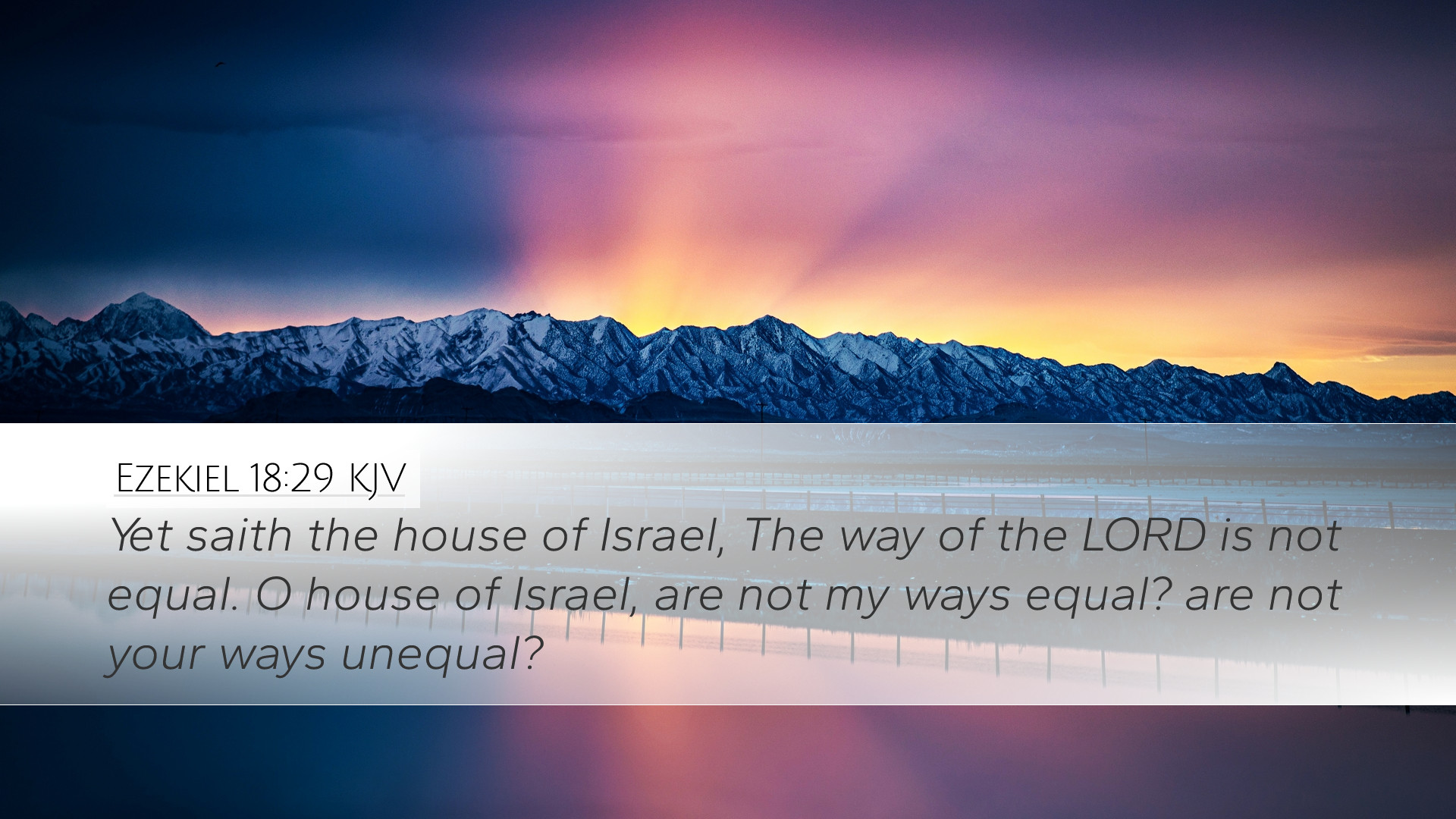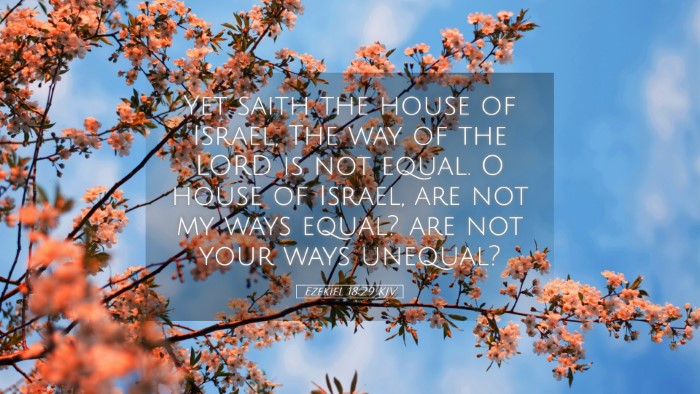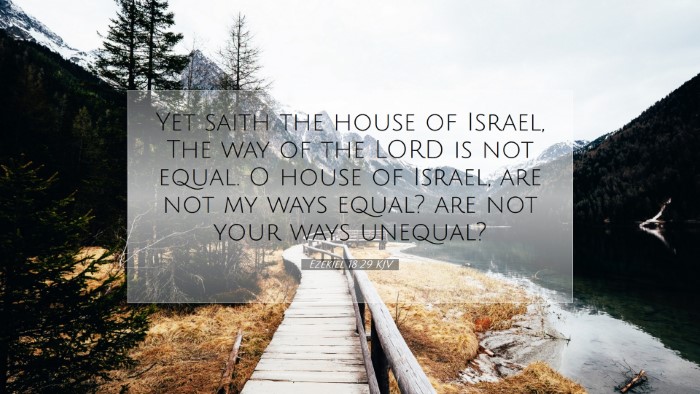Ezekiel 18:29 Commentary
Bible Verse: "Yet saith the house of Israel, The way of the Lord is not equal: O house of Israel, are not my ways equal? are not your ways unequal?" (Ezekiel 18:29, KJV)
Introduction
This verse encapsulates a profound theological message regarding divine justice and human accountability. Through the prophet Ezekiel, God addresses the grievances of His people, who accuse Him of unfairness in His dealings with them. This commentary synthesizes insights from public domain scholars to explore the implications of this scripture for contemporary understanding in pastoral and academic contexts.
Contextual Analysis
The surrounding chapters (Ezekiel 18) focus on individual responsibility and the principle that each person will be judged according to their own actions rather than the fate of their ancestors. This is a departure from earlier traditions that emphasized collective consequences. Thus, the accusations from Israel reveal a misunderstanding of God's equitable nature.
Setting the Stage for Justice
Ezekiel confronts the misconception that God punishes the innocent for the sins of their ancestors. Matthew Henry notes that God’s justice is absolute and impartial, asserting that His ways are just, while the people's understanding is clouded by their sins and transgressions.
God's Declaration
God’s response serves both as a gentle rebuke and a clarion call to recognition. The repetition of “are not my ways equal?” underscores His unwavering righteousness. Albert Barnes emphasizes that this is not merely a question but an assertion of divine truth meant to guide the Israelites back to correct theological thinking.
Theological Implications
This verse offers rich ground for theological reflection. It calls into question the nature of human judgment versus divine judgment. The accusation that God’s ways are unequal speaks to a deeper misunderstanding of divine justice that is often echoed in modern theological discourse.
Human Perception vs. Divine Reality
Human perspective often views justice through a limited lens, influenced by personal experiences and societal norms. Adam Clarke notes that humans sometimes interpret their suffering as unjust when, in fact, they are reaping the consequences of their actions. This brings to light the importance of recognizing the nature of sin and its repercussions within the framework of divine justice.
The Role of Accountability
Accountability is central to understanding Ezekiel’s message. Each individual is responsible for their own choices. Henry eloquently emphasizes that “the soul that sins shall die,” underscoring personal responsibility and the necessity for repentance. The sovereign God calls Israel to acknowledge their wrongdoing rather than shifting blame and questioning His fairness.
Practical Applications
The truths presented in Ezekiel 18:29 have crucial ramifications for contemporary believers, particularly in pastoral ministry and scholarly contexts.
For Pastors
- Teaching Divine Justice: Pastors are called to articulate the balance of God's justice and mercy. This scripture can serve as a platform for preaching about personal responsibility and the need for a humble return to God.
- Encouraging Repentance: The call to repentance is prevalent throughout the chapter. Pastoral counseling can benefit from encouraging individuals to take ownership of their actions, fostering a community of accountability.
- Addressing Misconceptions: Misunderstandings about who God is and His nature can lead to disillusionment. Pastors should engage with congregants around the attitudes reflected in Ezekiel’s time to clarify misconceptions about God's character.
For Theologians and Students
- Exploring Justice: This text presents fertile ground for research into biblical notions of justice. The accountability paradigm set by God invites examination of contemporary applications and understandings of justice.
- Historical Contextualization: The historical context of Ezekiel and the plight of Israel may yield insights into socio-political dynamics that can parallel contemporary issues within society.
- Intertextual Studies: Studying how this notion of God’s justice resonates with other scriptural passages can deepen understanding of the cohesive narrative of justice throughout the Bible.
Conclusion
Ezekiel 18:29 serves as a profound reminder of God's impartial nature. This brief commentary draws from the wisdom of historical theologians, illuminating critical points of divine justice that are applicable today. The call for introspection and acknowledgment of divine order challenges believers to embrace their accountability, ultimately reinforcing the understanding that God’s ways are indeed just and true. Let this verse inspire further reflection on the righteousness of God in our lives and communities.


